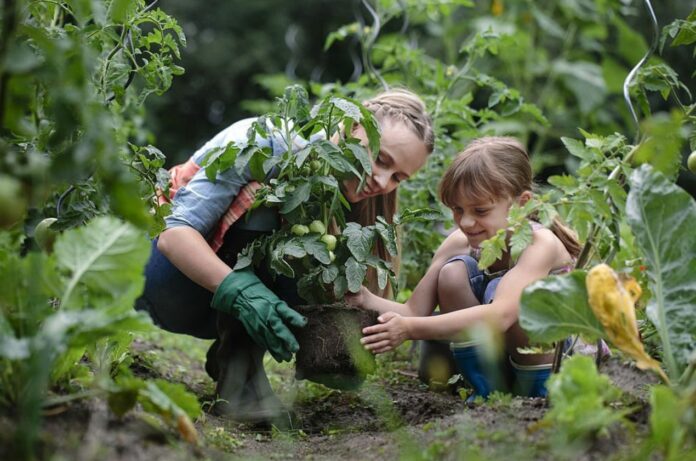Gardening Identified As A Affordable And Sustainable Solution For Reducing Cancer Risk, and Boost Mental Health
A new study published in The Lancet Planetary Health has found that community gardening can play a significant role in reducing the risk of cancer, chronic diseases, and mental health disorders.
The study, which was the first-ever randomized, controlled trial of community gardening, discovered that participants who started gardening ate more fiber and engaged in more physical activity, both of which are known to reduce the risk of cancer and chronic diseases.
Additionally, these individuals experienced a significant decrease in stress and anxiety levels.
The senior author of the study, Jill Litt, a professor in the Department of Environmental Studies at CU Boulder, stated that the findings provide “concrete evidence” of the numerous health benefits associated with community gardening.
Litt has devoted a significant portion of her career to finding practical, scalable, and sustainable approaches to lower disease risk, particularly in low-income areas.
It seemed like a good idea to start with gardening.
According to Litt, “No matter where you go, people say there’s just something about gardening that makes them feel better.”
However, there is a lack of reliable research on its effectiveness. She said that it’s hard to get people to back new programs without proof.
People who garden often consume more fruits and vegetables and have a better weight, according to several small observational studies. But it’s not obvious if gardening affects health or whether healthier individuals just tend to garden.
Only three studies have examined the pastime using the randomized controlled trial, the gold standard of scientific study. Nobody has explicitly examined community gardening.
To fill the gap, Litt found 291 adults in the Denver area who didn’t garden and had an average age of 41. More than half were from low-income homes, and more than a third were Hispanic.
After the last spring frost, half of the people were put in the community gardening group and the other half were put in a control group that wasn’t allowed to start gardening for a year.
The non-profit Denver Urban Gardens program and a research partner provided the gardening group with a community garden plot, seeds, and seedlings, as well as an introduction to gardening course.
Participants in both groups filled out questions about their diet and mental health, had their height and weight recorded, and wore activity trackers.
The study found that by the fall, those in the gardening group were consuming an average of 1.4 grams more fiber per day, an increase of approximately 7%.
Daily fiber intake can have a significant impact on inflammatory and immune responses, metabolism, and the risk of certain diseases such as diabetes and cancer.
The recommended daily fiber intake is between 25 and 38 grams, although the average adult consumes less than 16 grams.
“An increase of one gram of fiber,” according to co-author James Hebert, “can have large, positive effects on health.”
Additionally, the gardening group increased their weekly physical activity by roughly 42 minutes. Only 25% of Americans fulfill the public health authorities’ guideline of at least 150 minutes of physical exercise every week. Participants completed 28% of that need with only two to three weekly trips to the community garden.
Participants in the trial reported lower levels of stress and anxiety, with the biggest improvements in mental health concerns being shown in those who entered the study with the highest levels of stress and worry.
The findings of the research also demonstrated that even first-time gardeners may experience meaningful improvements to their health throughout their first growing season. Litt thinks the advantages will grow as they gain expertise and see higher returns.
Linda Appel Lipsius, the executive director of Denver Urban Gardens (DUG), is unsurprised by the results of the new study.
DUG is a 43-year-old nonprofit organization that assists around 18,000 people annually in growing their own food in community garden plots.
“It’s transformational,” Lipsius commented, “even life-saving, for so many people.”
Many DUG members reside in places with severely limited access to reasonably priced fresh produce. Having a garden plot enables some low-income immigrants who now reside in flats to cultivate food from their place of origin and share local recipes with their family and neighbors.
While gardening alone is healthy, Litt noted that gardening in a group may have additional advantages. “Even if you come to the garden looking to grow your food on your own in a quiet place, you start to look at your neighbor’s plot and share techniques and recipes, and over time relationships bloom,” Litt added.
There’s more to it than simply eating your fruits and veggies. It also involves socializing with people in a natural setting outside.
Health practitioners, politicians, and land planners should consider community gardens and other places that promote social interaction in nature as an essential component of the public health system, according to Litt. She said that the proof is clear.
A garden may be the best place to spend time.
Image Credit: Getty
